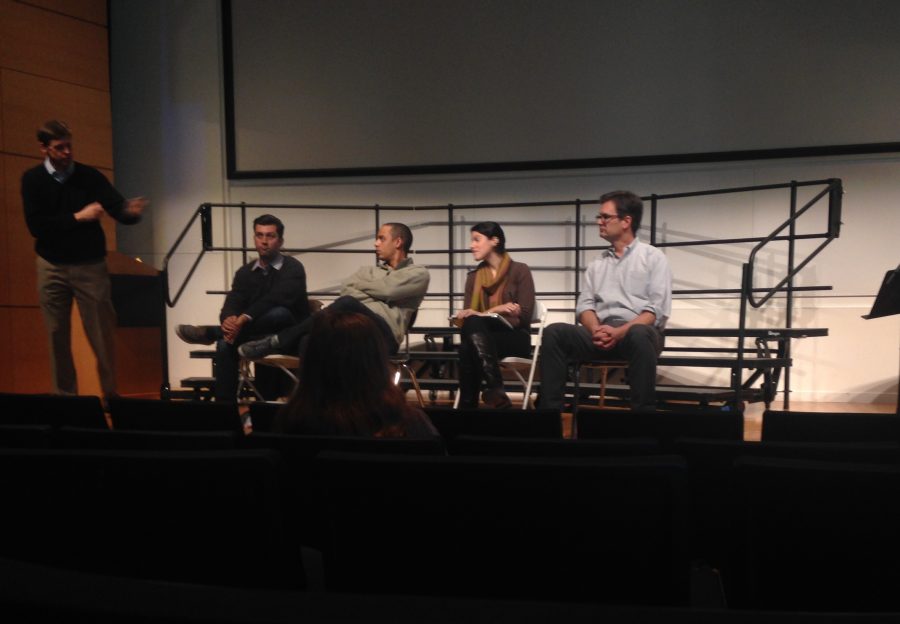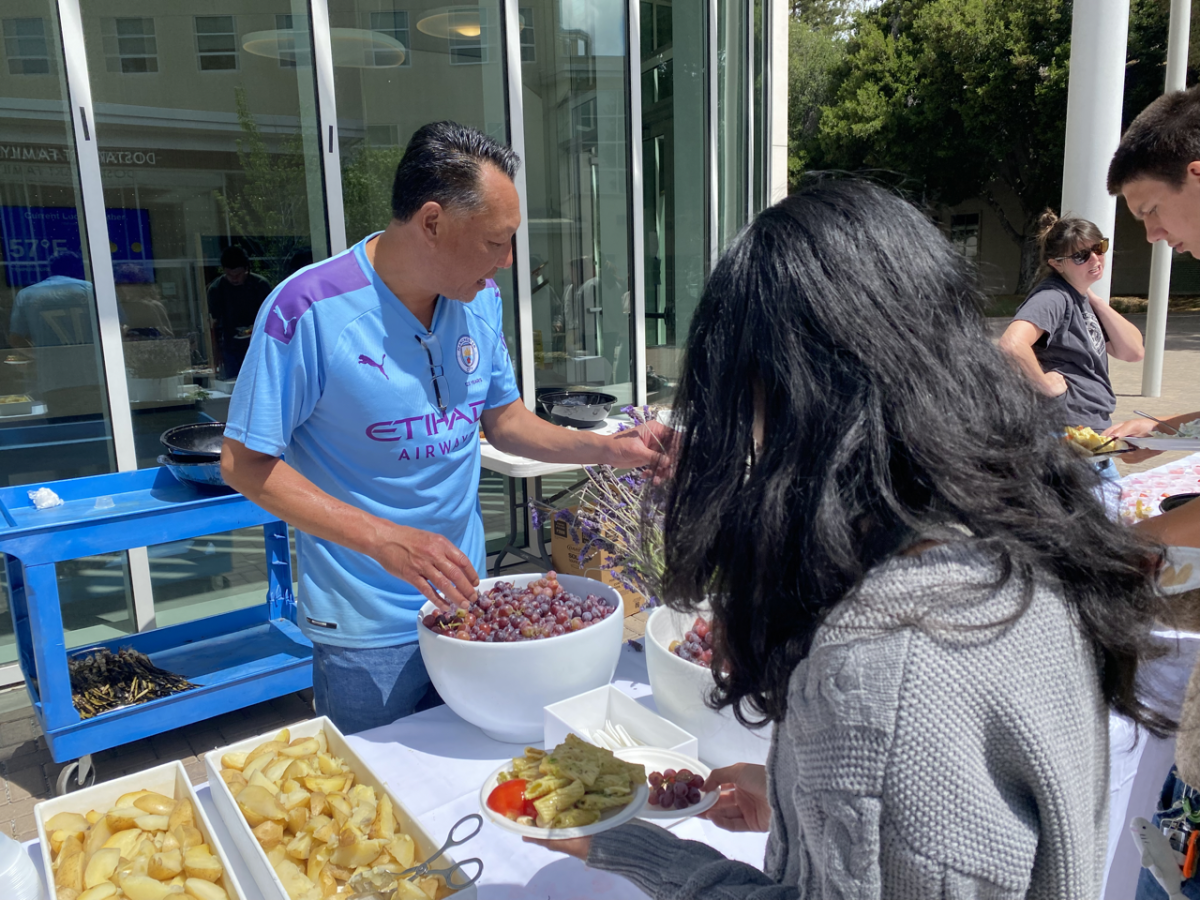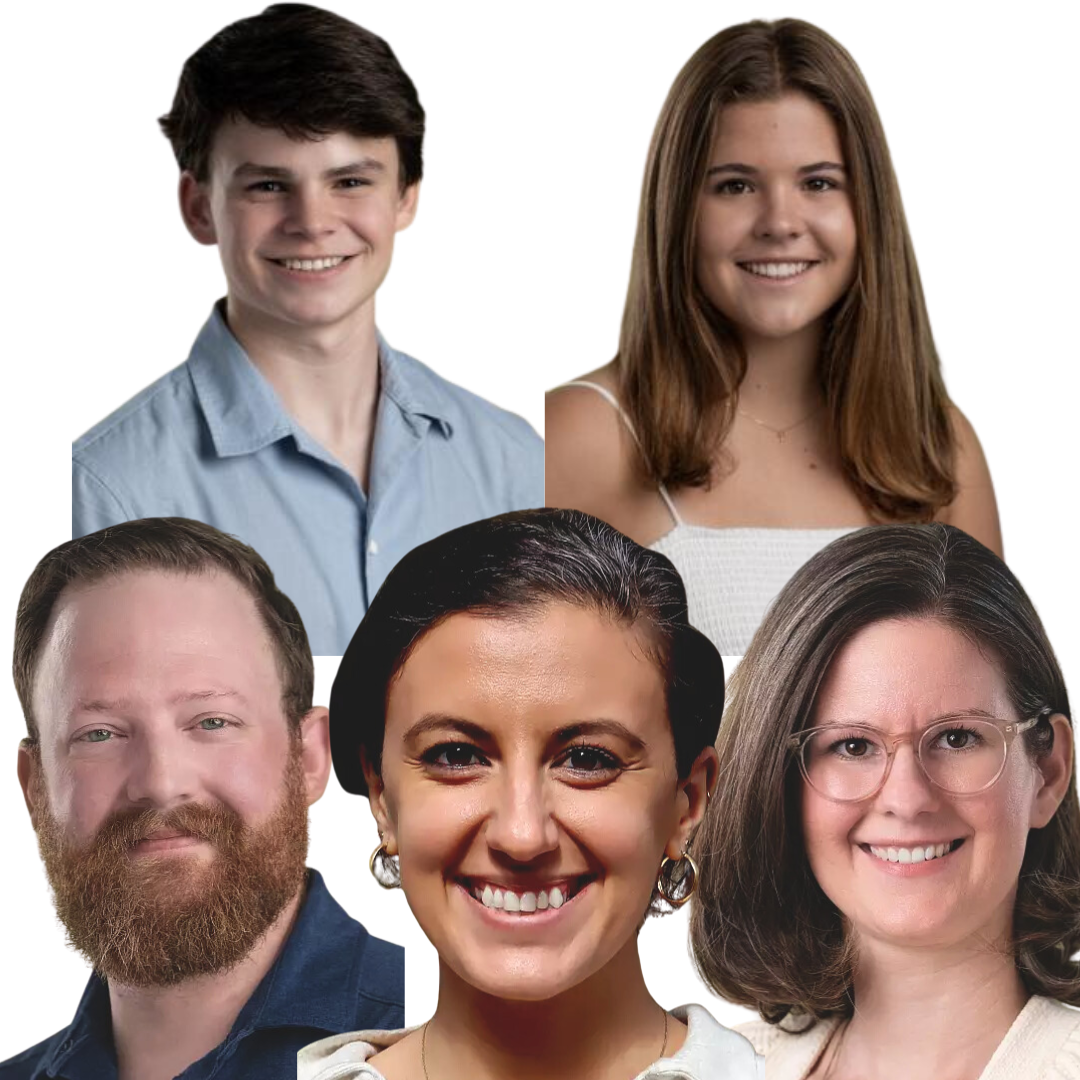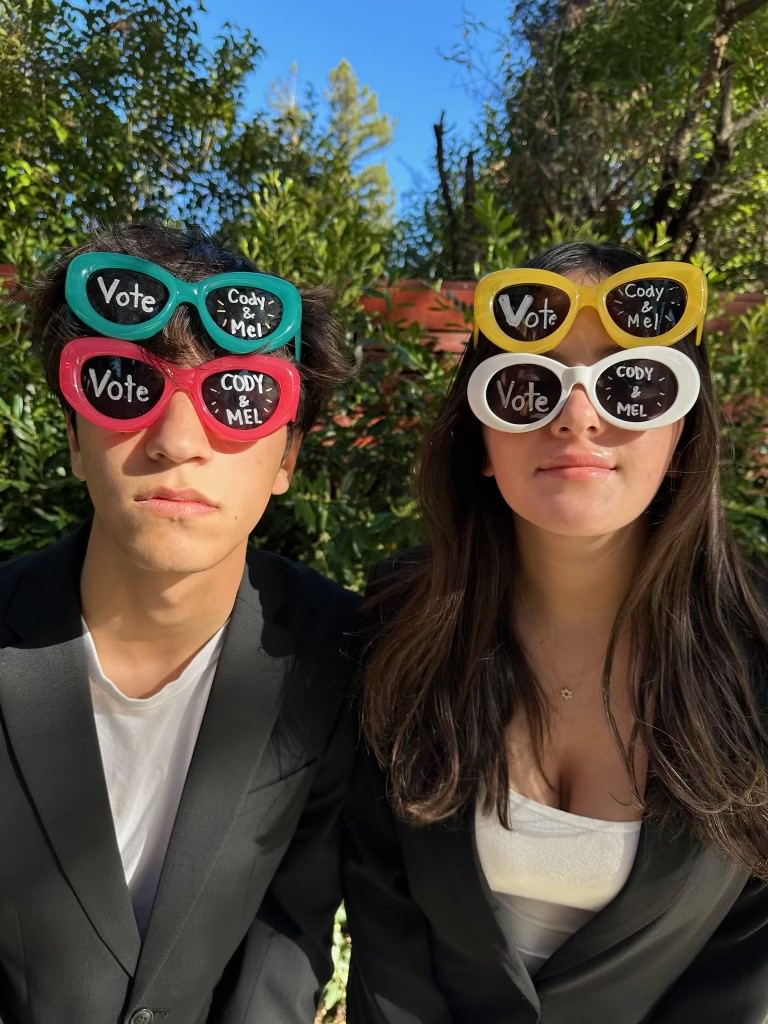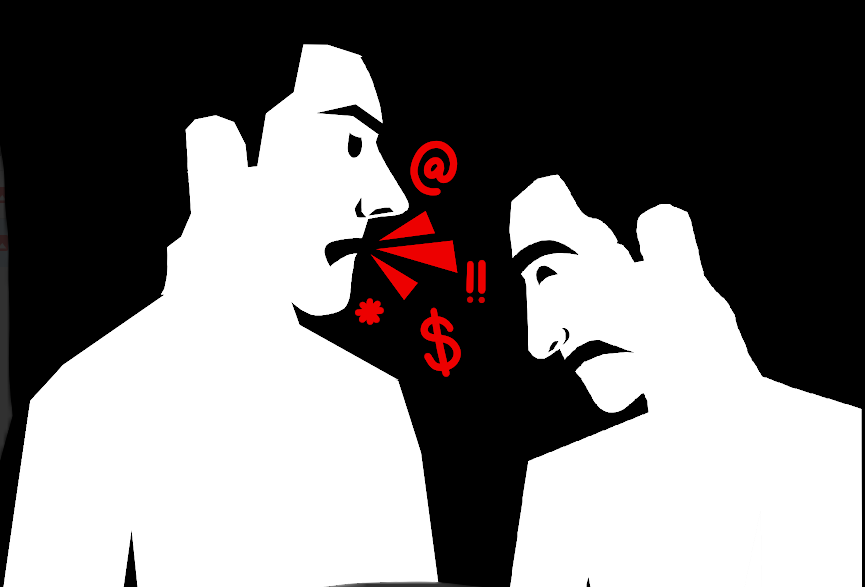Wonder what was discussed during the last Election Club lunchtime panel? Read below to find out. Staff photo: Kaitlyn Tom.
By Kaitlyn Tom
In the wake of the election, the Election Club hosted a lunchtime panel of teachers in Martin Family Hall on Nov. 29 to discuss the outcomes of the election results. The goal of the discussion was for the panel of teachers to help students and other faculty members understand what a Trump presidency will mean.
The panel consisted of history teacher Charles Hanson, history teacher Charles Wetherell, History Department Chair Ryan Dean, and English teacher Maren Adler.
Director of Upper School John Schafer began the discussion with his own question, and then turned the questions over to audience members, which was comprised of students and faculty members.
One of the main topics discussed was how Trump, as a business man, will adapt to his role as a politician. “He is finding out right now […] that the rules of politics are not the rules of business. […] He’s going to adapt to the different set of rules or he isn’t,” Hanson said.
Students asked questions about a variety of social issues, including Trump’s plan to create a registry of Muslim citizens. Dean saw the possibility of a Muslim registry as feasible but highly improbable. “If we do declare war on ISIS […] we could do something like what Roosevelt did during the second world war — creating facilities for a certain group. That’s not an impossible outcome to imagine,” Dean said. Still, Dean recognizes Trump’s stance on war affairs, which would prevent this from happening. “Trump wants to withdraw our troop presence back within the United States,” Dean said.
Students were also concerned with what the future will look like for abortion clinics. “[Trump would] need to appoint at least two more [supreme court justices] that have an anti-Roe v. Wade agenda, and that’s many years down the line,” Adler said. “It’s not like he’s stepping in and saying, ‘Roe v. Wade is being overturned.’”
Wetherell responded, commenting that the overturning of Roe v. Wade could undermine the power of the Supreme Court. “[If they overturn Roe v. Wade] it invalidates the power of the court,” Wetherell said.
An overarching theme in many of the questions was the topic of the media redefining America. “My biggest fear is that social media and the internet has made us less informed voters rather than more informed voters, and that is long term [really] bad,” Wetherell said. “If 85% of Americans don’t trust the media anymore, you start losing what facts are, and once you start losing what facts are, then arguments are easier to win. If all we’re fighting over is our feelings, rather than the facts on the ground, then those are easier fights.”
Hanson, by pointing to historical patterns, viewed Trump’s usage of social media as an aspect that will reshape how future presidents will use various platforms. “Herbert Hoover didn’t understand how to use the radio, but Franklin Roosevelt did, and once Roosevelt became president, anyone who wanted to be a serious candidate needed to use radio. […] I think that future candidates will need to use [social media].”
Overall, students enjoyed the discussion because it gave them a more in-depth understanding of what Trump plans to do. “I’ve been hearing a lot about Trump recently, so pretty much all of it wasn’t super unexpected, but the panelists brought interesting points of view to the table,” junior Drew Wadsworth said.
Students enjoyed the panelists’ diverse viewpoints. “I thought that the viewpoints were pretty diverse although most of the panelists had the same beliefs about what’s going to happen with the Trump presidency,” junior Jacqui Escatel said.
Students hoped that there was enough time to cover a broader range of topics. “I’m interested in what [what the panelists think of] his policies […] on LGBTQ [issues],” junior Atreya Iyer said.
Escatel also had hoped that the panelists had covered more topics. “I wish that the effects of what Trump said during his rallies was brought up more,” Escatel said. “Something I’m […] really interested in is whether or not Trump will say more of these offensive comments now that he’s actually been elected president and whether or not his previous comments will come back to hurt him in the future.”
The lunchtime panel helped students and faculty better comprehend the impact of Trump’s election not only on individuals, but also on society as a whole.


